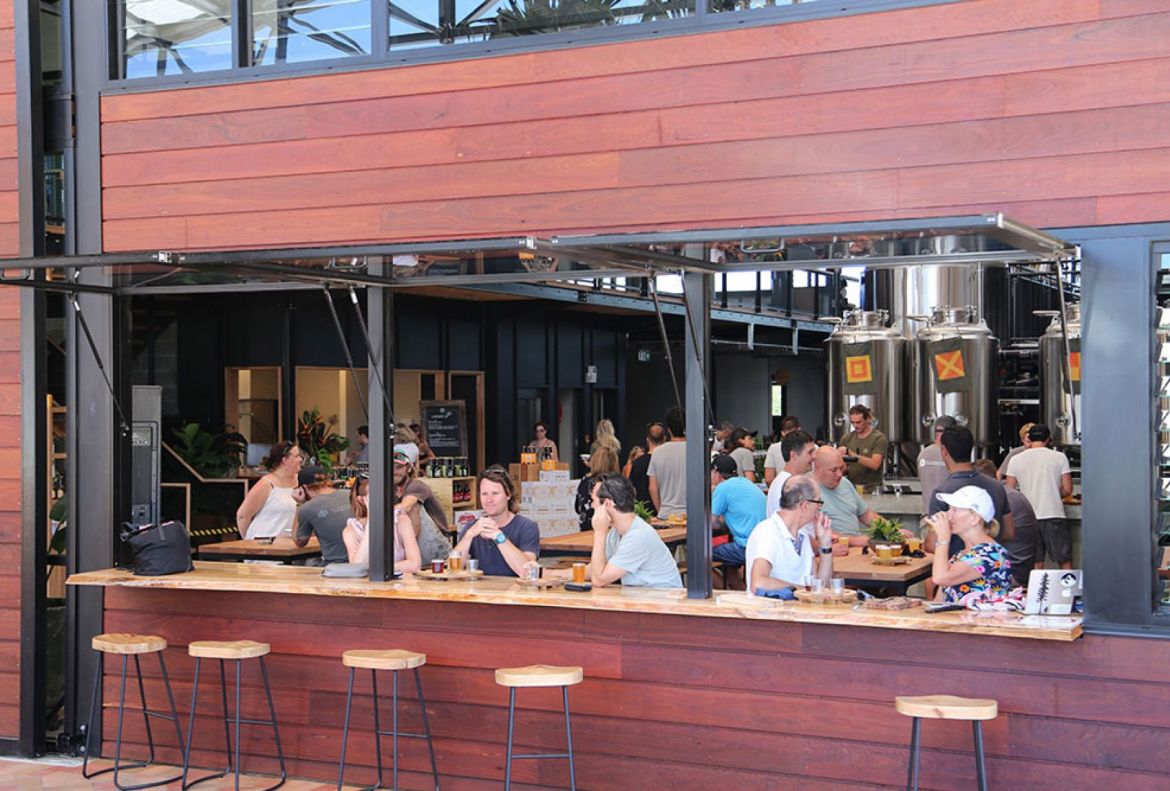The business of craft beer is one that can be typified by tight margins and long hours, and one that can require a lot of investment to grow at the best of times. So, in a period of economic uncertainty and mounting challenges like 2023, running a brewery is as tough as it's ever been.
However, a man who's been at the top of the most successful brewing company story of the modern era is eager to help. Nick Boots – better known within the industry as Bootsy – has just launched The Business of Beer as a means to support independent breweries following nearly three decades working with beer and other beverages, most recently as general manager of Stone & Wood.
After finishing up with Stone & Wood and Fermentum at the start of the year, he took some time off and found himself inundated with industry mates calling for advice.
“The phone started ringing after a week or two with people just looking for assistance on smaller and larger stuff,” Bootsy says. “I was happy to have a chat, for half an hour or an hour to help people out, and then the questions became bigger and broader.”
With no real plans for 2023, he started catching up with friends in the industry to see if they thought there was a need for a consultancy and advisory outfit designed to support indie brewers. He says the response was a resounding "yes" and, while there are many brewing consultants helping with all aspects of production, he felt there was a gap for indie brewers to bring in strategic and commercial support from someone with a wealth of knowledge garnered from building beer businesses and selling beer.
“The investment might be pretty minimal compared to putting on extra staff,” he says, “but I do think the demand for me will be with breweries who don’t have the resources to do what the bigger guys can do – they don’t have the people or the money.”

Prior to his role at Stone & Wood and the time working within Lion following the sale, Bootsy was Kegstar’s general manager, while he’s also spent time at CUB, Liquorland and the data firm AC Nielson.
He says his focus will be on helping breweries develop their own business plan: areas such as sales and marketing strategy, taproom development, and employee initiatives to build a strong workplace culture, including both short and longer-term consultancy and advisory support.
“I can come in and verify the plan [brewery owners have] got, or help build on it and give them the confidence they're heading in the right direction,” he says.
For the most part, his early conversations have raised similar concerns too.
“There’s a lot of places that have progressed to 200,000 to 300,000 litres often through their own venue and local customers. But now they have the aspiration to push beyond half a million.
“So, the questions are: How do we do it? Where do we do it? Is our packaging and our brand strong enough?
“But there are also people saying, ‘We’re stoked with where we are, we just need to sit down with our board and few key stakeholders and map out the next three to five years strategically.'”
Describing himself as "a huge advocate for sustainable growth", he adds: “If it isn't growth for volume and it's just about becoming more profitable without necessarily needing to sell more, I think I can add some pretty good value there as well.
“That journey might just mean getting to 400,000 litres and that turns over a solid little profit; you can work four days a week and play golf on a Friday. And you've got 30 employees, you're a great community member, you're spending some time on sustainability and you're enjoying life.
“For a lot of people, that’s what success looks like. It can be missed when a lot of people are just trying to run so fast.”
In an industry where litres-per-year is often seen as shorthand for success and where any expansion can be hugely expensive, Bootsy says selling more beer doesn't equate to a brewery's success either.
“I think helping brewers understand that too is something I might potentially be able to help them out with," he says, "because you see too many just go 100 miles-an-hour for five, six years, then they burn out.”
Despite this year shaping up to be particularly challenging for Australian breweries, with several going into voluntary administration and even more currently up for sale, Bootsy hopes he can help breweries avoid finding themselves in the kind of position where they have to call in administrators. Already, some are slowing growth to avoid being overleveraged.
“What I'm hearing at the moment, is people go, 'We need to pause, have a deep breath, and really batten down the hatches for the next one to three years.',” he says.
The Bootsy’s Camp

So what are some key ways he thinks breweries can find success? He offers a number of fundamentals.
While making great beer and having a great brand is essential, planning decisions around any growth always need to make commercial sense too.
“The key is to have a plan – a well thought-out, considered plan – and actually just pause and spend that time working on the business,” he says.
“It can be quite elusive, pulling it all together so you've got a strong commercially stable business as well.”
Ensuring you pay attention to and build all your sales channels, whether it's your own taps, those in nearby pubs, or cans you're sending into another state is also key.
“One of the great strengths of a lot of successful brewers is they've got diversity across their business,” he says. “So, they've got a strong online channel, they've got a strong indie [retailer] business, and they’ve got a bit of business in the national retailers. But they haven't got all their eggs in the nationals' basket, which is a problem that is far too common at the moment.
"So if one part of that business falls over, or is having a soft period, then that's OK because there’s volume across those other channels as well."
Having a venue of your own means you can get great margins out of your taps, but Bootsy adds that if you're looking to build your beer brand, it's important to leverage the success of your brewery experience to drive beer sales elsewhere.
“They might walkin, love the beer, and wake up the morning and go, “I had a NEIPA that I bloody loved yesterday and I couldn’t tell you where it was.'
“And none of those breweries they went to got their details so they’ll never hear from them again and probably never find that beer again.
“So it’s about leveraging that taproom into a real marketing driver and then seeing how can you stay connected, whether through an online store, beer club, or by creating brand adorers which we did in Byron. We weren't so focused on the profit from the taproom, it was more about it being a great marketing tool and, at the end of the day, we wanted people to walk into bars, restaurants and bottleshops and ask for our beer.”
The Future
Even though Bootsy admits the industry is currently faced with a fearsome raft of challenges, he's still optimistic about what lies ahead, believing there remains a chance for new breweries to come onto the scene and explode.
“I think the future is still strong. Do I think the rate of growth has changed and is changing? Absolutely it is. I don't buy into the doom and gloom.
"Are things a little more challenging now? Yeah, but there are still massive opportunities to be greatly successful, whatever success looks like for each brewery.
“I’m super passionate about indie beer and I think the future is as bright as I’ve ever seen it.”
You can find more on The Business of Beer here.












